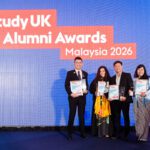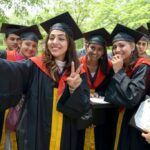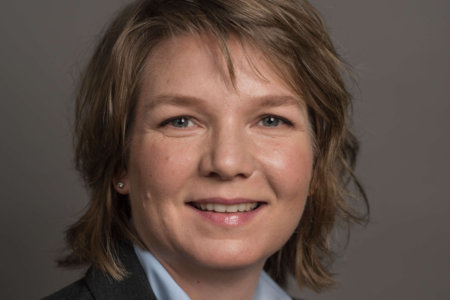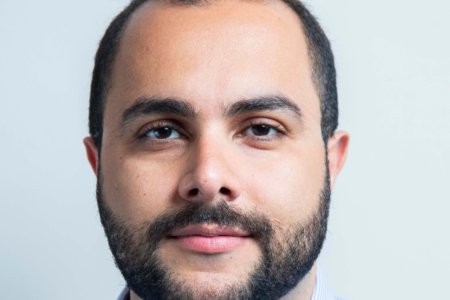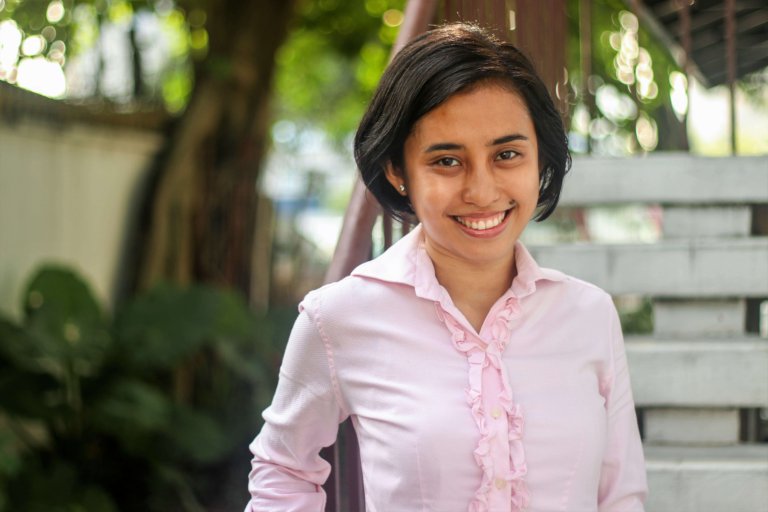
The British Council scholarship — “Women in STEM” — programme funds women to study STEM (Science, Technology, Engineering, Mathematics) programmes in UK universities. It covers tuition fees, travel costs, visas and health insurance.
Debbie Ann Loh is set to pursue an International Public Health programme at Liverpool John Moores University (LJMU) with this scholarship. “It is said that talent is everywhere, it only needs the opportunity. I’m very grateful to the British Council for opening this door for me. I hope to inspire and encourage more Malaysian girls and women to boldly pursue their ambition and create impact through STEM,” she says.
We caught up with Loh via email to learn more about her British Council scholarship, the four T’s you’ll need to follow in her footsteps and her future plans in International Public Health:
Is there a personal story behind your interest in international public health?
I think of how my journey into this field has been like building with LEGO bricks. Each brick tells a story of my learning and growth and collectively have shaped my interest and passion in public health with a global perspective.
Using the analogy of brick-building, I discovered my first brick during my undergraduate studies in Food Science and Nutrition. There, my supervisor often encouraged me to be actively involved in health promotion activities in our communities, whether it be at schools or exhibitions.
My collection of building pieces grew as I volunteered at a local foodbank, interned on a mobile health screening bus, worked as a research assistant (then at a women-led health and wellness startup), and most recently in cross-cultural settings.

“Using the analogy of brick-building, I discovered my first brick during my undergraduate studies in Food Science and Nutrition,” Loh says. Source: Debbie Ann Loh
This helped me learn and understand the various public health challenges among persons of different cultures and geographical landscapes. Through these experiences, I had the chance to interact with various demographics from school children to the urban poor and indigenous tribes.
I continue to learn about issues such as health disparities, health literacy, food insecurity and prevalence of disease within Malaysia and beyond our borders. As with LEGO, my journey of building, rebuilding and discovery in this field continues.
Walk us through what winning the global British Council scholarship was like for you. What was the application process like?
This is a moment of history for the books. I am incredibly grateful for how the British Council shines bright as a beacon of hope in recognising and valuing women. Not to mention, honouring their courageous ambitions and empowering them to impact their worlds through STEM.
This scholarship meets the great need to ensure women are kept in the career pipelines in STEM, especially during this pandemic. More than ever, increasing representation and inclusion of women in science, technology, engineering and mathematics together with mentoring, network and support are all moves in the right direction.
Winning this scholarship by the British Council has afforded me the treasured opportunity to pursue my dream of learning and growing in public health from a global lens. This success is a tribute to my family, support circle and colleagues who have spurred me on in my journey.
I also attribute this win to my lecturers and mentors. These women in STEM have paved the way and opened doors for me to explore, discover and pursue my interest and passion in international public health. One of the many includes Professor Noran Naqiah Hairi from the University of Malaya who has greatly impacted and encouraged me in my academic pursuits till today.
My long-time dream to venture abroad to broaden my scope into public health with an international viewpoint was shelved for years as it was financially beyond my reach. Imagine my excitement and disbelief when I heard about this fully-funded scholarship by the British Council to pursue a field of interest in the UK. The stars seemed to have aligned and it was a clear sign that I had to apply for this rare opportunity.
The application process involved obtaining an offer of study in the participating uni. The shortlisted applicants were then contacted to apply for the British Council Women in STEM scholarship. This involved a series of questions and reflective mini-essays.
Why choose LJMU in the UK?
LJMU was one of the 19 participating unis in this scholarship programme for Women in STEM by the British Council. It’s also the designated destination for aspiring South East Asian applicants who are keen to pursue a postgrad course in health and life sciences.
I got to know of this uni and the scholarship through YPC International College, a Malaysian collaborative education partner with LJMU. Furthermore, I was drawn to the multi-disciplinary expertise, community-based research and wide networks of the Public Health Institute.
Lastly, the diversity of Liverpool’s vibrant city life made it seem all the more inviting.
What are you looking most forward to doing in the UK?
The UK is a global leader in impactful public health research with established international collaboration and networks. Thus, I’m looking forward to building new friendships, discovering fresh perspectives, growing my knowledge, experience and networks in my field.
As the UK is home to a richly diverse population, I’m excited to interact and learn from people of various cultural backgrounds within and beyond the uni community.
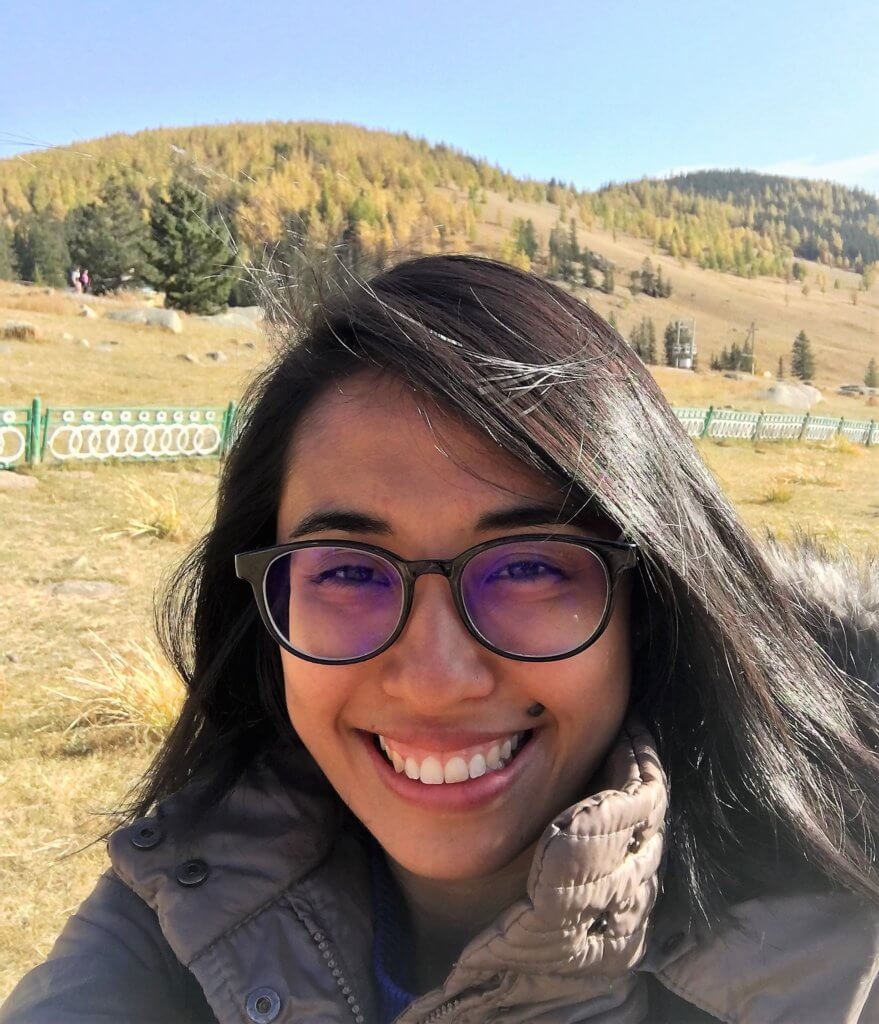
Loh is looking forward to visiting the quaint towns around Liverpool. Source: Debbie Ann Loh
What about cultural spots you’re looking forward to in the UK?
I’m looking forward to visiting Tate Liverpool, a popular contemporary art gallery. I hope to also experience the medieval feel of York and explore the quintessential British villages in the Cotswolds.
Tell us about your hometown. What places would you show us?
In Malaysia, I’d meet you for a morning walk in Petaling Jaya and show you a tucked-away “kebun” (neighbourhood garden). Our next stop would be breakfast at my favourite local “kopitiam” (coffee shop) where we can also enjoy a steaming bowl of noodles.
If you want to take back home a memory, you can choose a plant from a one-of-a-kind nursery or take-away our famous fish paste noodles.
What’s something you know you’ll miss from home and how do you plan to substitute it?
Besides family and friends, I’ll miss “durian” (a tropical fruit with creamy pulps and a spiky shell). I’ve yet to discover if there are imported durians there at a reasonable price in the UK. I’m managing my expectations and shall patiently wait until I return home to Malaysia.
Is there anything you’re planning to bring back to your family and friends back home from the UK?
A journal of my experiences in the UK, sharing my stories that will warm hearts, bring laughter, inspire, and hopefully bring a sense of wonder.
What advice do you have for women who want to apply for the global Women in STEM scholarship by the British Council?
To all aspiring women applicants, I’d like to share four Ts with you: try, true, trust and thankfulness. Firstly, try — give it a go. Submitting your application will give you a higher chance of winning and gaining new experiences than holding back.
The next T, stay true to yourself. Take the time to reflect on your past experiences, your current position, and your future aspirations. Be sure to express that in your scholarship essays and interviews.
Thirdly, trust the process. I faced various obstacles throughout my application and pre-departure journey. Jumping through these hoops taught me to cherish my support circle, appreciate the kindness of strangers, be honest about my mistakes, and never give up.
The final T — be thankful for the small and big things, the challenges, and the wins as they are all gifts. No matter the outcome, always remember those who have opened doors for you and remember to do the same for others.
Lastly, let’s end with three fun facts about yourself:
I love collecting postcard-sized hand-drawn artwork. Chemistry was my favourite subject in high school because I thoroughly enjoyed the experiments and equations. I hope to organise an event one day that combines art and women in STEM.





